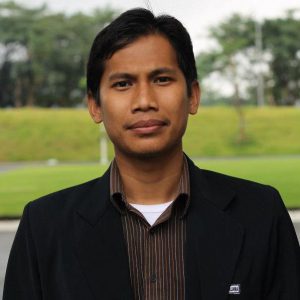Human concern for the continuity of life is getting higher and higher. The quality of the earth is decreasing due to the increasing amount of pollution from vehicles, factories and residential environments. Increased environmental degradation due to economic behavior, production and consumption patterns that only consider temporary and unsustainable interests or ignore the existence of sustainable ecosystems. For this reason, a global action plan has emerged that has been agreed by world leaders, including Indonesia, to end poverty, reduce inequality and protect the environment or what we know as the Sustainable Development Goals (SDGs). The SDGs contain 17 Goals and 169 Targets that are expected to be achieved by 2030. The SDGs concept is a continuation of the Millennium Development Goals (MDGs) concept which has been implemented previously.
If we look at the 17 goals of the Sustainable Development Goals (SDGs) all of them are in line with the Vision of the Faculty of Economics, UNNES, in providing superior and character education as well as developing and disseminating science and technology in the field of economics and economic education with conservation insight and international reputation. For example, the goal of the 4 SDGs is to ensure inclusive and equal quality education, as well as to support lifelong learning opportunities for all. As well as the 12 SDGs goals which ensure sustainable consumption and production patterns.
The university educates individuals in both knowledge, skills and behavior. For this reason universities have a great responsibility to raise awareness, knowledge, technology, and development tools needed to create an environmentally friendly future that will support the realization of the Sustainable Development Goals (SDGs) in Indonesia. Internationally, this initiative is manifested in the Higher Education Sustainability Initiative (HESI), which consists of 272 universities from 47 countries. There is also the Talloires Declaration (TD) signed by more than 350 universities from 40 countries that are committed to Educational for Sustainable Development (ESD). Semarang State University has implemented education for sustainable development (ESD) which is clearly visible from its vision of conservation. A sustainable university can be defined as an institution of higher learning that addresses, engages and promotes the minimization of negative environmental, economic, social and health impacts in the use of their resources [in] the main functions of teaching, research, outreach and partnership, and devotion to [helping ] society is making the transition to a sustainable lifestyle.
How do we get started? To become a sustainable university/faculty there are several steps that can be taken, including; building a sustainable university/faculty platform as stated in the vision and mission; join and cooperate in organizations that have the same goals both nationally and internationally; select some of the goals of the SDGs to be the core university/faculty; and create interesting and impactful actions or campaigns. In the transformation to a sustainable university/faculty, components are needed in the form of leadership commitment, social network, participation, education & learning, research integration, performance management.
In strengthening sustainable universities/faculties, awareness and participation of all stakeholders is needed, including lecturers, students, employees, the surrounding community and others. For this reason, it is necessary to continue to hold sustainable development/conservation actions or campaigns. Some forms of action or campaign can be; recycling, involving all parties in responsible waste management; hydration station, providing a place for refilling drinking water; save energy, be wise in using energy/electricity/electronic devices and optimize energy/light/natural air; minimize waste and packaging in every activity; green transportation in the form of bicycles, electric vehicles or riding together/tandem; healthy lifestyle, responsible consumption and production; donations in various forms in support of sustainable development; and other actions. These activities will create an atmosphere, perspective, behavior, character and culture of a sustainable university/faculty.
From various religious, scientific, social and other perspectives, we will conclude that we must synergize with the environment/earth/planet for a better life. Then sustainable development is not an option but a necessity!
Khasan Setiaji

